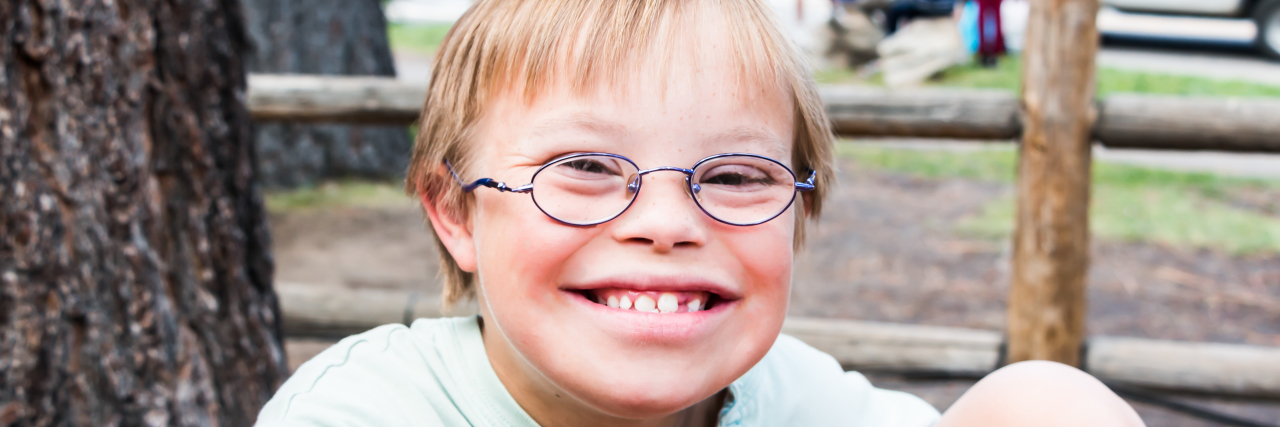Not long ago I had an experience that made me rethink what I know and how I communicate about Down syndrome. I was having a telephone discussion with someone I value and respect. We were talking about providing resources and lessons via my day job with Learning to Give, and I mentioned wanting to make sure what we were planning was inclusive and open to a diverse audience. The person on the call agreed and we began chatting about why inclusion is important.
To be frank, some of the parts of this conversation have been rewritten because I wasn’t recording the conversation or intending to remember it word-for-word. So, this is my recollection, but the gist remains:
“I think it is really important to have full inclusion,” she said. “When I was working overseas, I was in a classroom where three young boys had Down syndrome. They were fully included. They got along with everyone and we could all see how much being with their peers was helping them learn and grow. It was like there was nothing wrong with them.”
Did you catch that? The closing remark? “It was like there was nothing wrong with them.” It hit me like I just finished sprinting a lap around the track. I felt winded. My hands began to shake. Instantly, my brain was working overtime to try to figure out what to say.
At first, I couldn’t say anything. I let the conversation continue on as if nothing cracked a hole in my atmosphere. But after a few minutes, I managed to get my thoughts in order, and before the conversation switched to a new topic, I advocated.
“Wait, I want to go back to something you just said,” I ventured. “I don’t think you meant anything by it at all, but there’s nothing wrong with a person who has Down syndrome or any other exceptional need. I just want to be sure that we’re on the same page about that.”
We all say things and do things based on what we know and what we’re socialized to think. In some ways, our thoughts are “stuck in the past” and so ingrained in us that we don’t realize that what we are saying, or rather, how we say something can be harmful, to both our understanding and to human progress.
Our worlds are socially constructed, or the development of our understanding of the world forms through the basis of shared assumptions about our realities. In this theory of understanding, development is socially situated and knowledge is constructed through interaction with others. We are a product of our environments plus our willingness to step outside of our comfort zones to experience new surroundings.
How we talk about things and how the world talks about things are not always the same. Big D Discourse is written or spoken communication on a large scale; the way the world communicates about a topic. Little d discourse is written or spoken communication in our own communities and circles. Discourse, discourse and social contructionism are concepts I learned in graduate school and I see them played out on a daily basis.
For me, the above conversation became a moment to consider how an innocent comparison in conversation can be harmful to the Discourse surrounding a diagnosis like Down syndrome.
The Discourse about Down syndrome is changing for the better, but there is still work to do, just as the above conversation displays. Even when we are true advocates for a cause, when we see value in all human life, when we work together to provide opportunity and support, we likely unintentionally fall back into the rhythms we grew up with. We must be active in our advocacy and by that I mean we need to be aware of our own faults and biases.
Simply being aware isn’t enough. With awareness comes the responsibility to do the hard work to train ourselves, our minds and our actions, so we are able to fully immerse ourselves in new rhythms. It’s about learning from the past so we can progress toward a more inclusive, whole and purposeful future.
I want my son to know he is loved, valued and able. There’s nothing “wrong” with him. He is exactly who he is meant to be.
Getty image by Gregory Dean.

